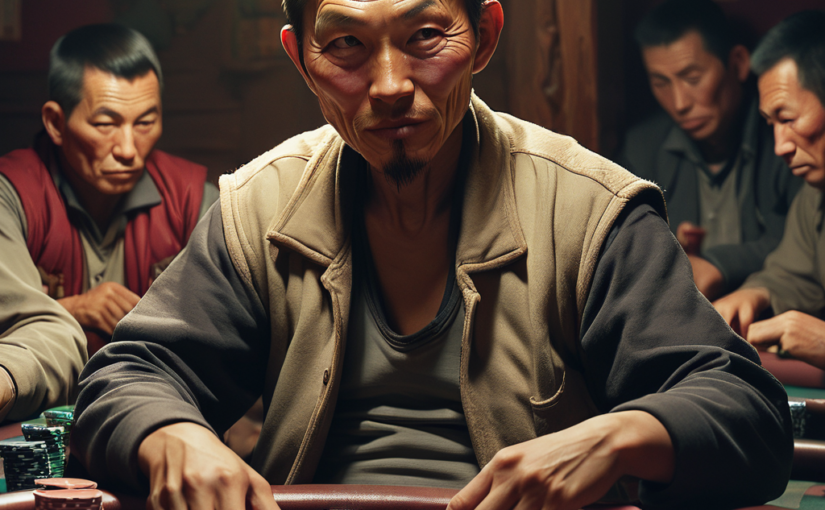Tektok77: Destinasi Utama untuk Pengalaman Slot Terbaik dengan RTP Akurat Tahun 2024
Dalam industri perjudian online yang terus berkembang, pencarian untuk menemukan bandar slot terbaik menjadi prioritas bagi banyak pecinta slot. Di tengah berbagai opsi yang tersedia, Tektok77 telah muncul sebagai destinasi utama bagi para penggemar slot tahun 2024. Mereka tidak hanya menawarkan berbagai permainan slot yang menarik, tetapi juga terkenal karena menyajikan Return to Player (RTP) yang akurat, memberi pemain keyakinan bahwa pengalaman bermain mereka adil dan menguntungkan.
Pengalaman Slot Terbaik
Tektok77 menawarkan pengalaman slot yang luar biasa bagi para penggemar judi. Dengan koleksi permainan slot yang luas dan beragam, mulai dari slot klasik hingga yang paling modern, para pemain dapat menemukan permainan yang sesuai dengan selera dan preferensi mereka. Antarmuka yang ramah pengguna dan navigasi yang mudah memastikan bahwa para pemain dapat menikmati sensasi kasino yang autentik dari kenyamanan rumah mereka.
RTP Akurat untuk Kemenangan yang Dijamin
Salah satu keunggulan utama Tektok77 adalah ketepatan dalam menyajikan RTP untuk setiap permainan slot yang mereka tawarkan. RTP adalah parameter penting yang mengukur seberapa banyak dari total taruhan yang akan dikembalikan kepada pemain dalam jangka waktu tertentu. Dengan RTP yang akurat, para pemain dapat membuat keputusan taruhan yang lebih cerdas dan merencanakan strategi mereka dengan lebih baik, karena mereka memiliki pemahaman yang jelas tentang peluang kemenangan mereka.
Beragam Pilihan Slot
Tektok77 menawarkan beragam pilihan slot untuk memenuhi kebutuhan dan preferensi para pemain mereka. Dari slot klasik dengan tiga gulungan hingga slot video dengan fitur bonus yang canggih, ada banyak opsi untuk dipilih. Dengan tema yang beragam dan fitur yang menarik, setiap pemain dapat menemukan slot yang sesuai dengan selera mereka.
Keamanan dan Kepercayaan
mengutamakan keamanan dan kepercayaan dalam semua aspek operasional mereka. Mereka menggunakan teknologi enkripsi terbaru untuk melindungi data pribadi dan keuangan para pemain mereka dari akses yang tidak sah. Selain itu, mereka memastikan bahwa setiap transaksi dilakukan dengan aman dan terjamin, sehingga pemain dapat melakukan taruhan mereka tanpa khawatir tentang kerahasiaan atau keamanan informasi mereka.
Layanan Pelanggan yang Ramah
Tim dukungan pelanggan siap membantu para pemain dengan pertanyaan atau masalah apa pun yang mungkin mereka miliki. Dengan layanan pelanggan yang tersedia 24/7 melalui berbagai saluran komunikasi, seperti obrolan langsung dan surel, para pemain dapat yakin bahwa mereka akan mendapatkan bantuan yang mereka butuhkan dengan cepat dan efisien.
Kesimpulan
Tektok77 adalah tempat terbaik untuk para penggemar slot yang mencari pengalaman bermain yang luar biasa dengan RTP yang akurat. Dengan fokus pada pengalaman slot terbaik, RTP yang akurat, beragam pilihan slot, keamanan yang terjamin, dan layanan pelanggan yang responsif, mereka telah membuktikan diri mereka sebagai salah satu bandar slot terbaik tahun 2024. Bagi para pecinta slot yang mencari pengalaman bermain yang terbaik, adalah pilihan yang tepat. Dengan reputasi yang solid dan komitmen untuk memberikan pengalaman perjudian yang luar biasa. Mereka terus menjadi pilihan utama bagi para penggemar slot daring.









